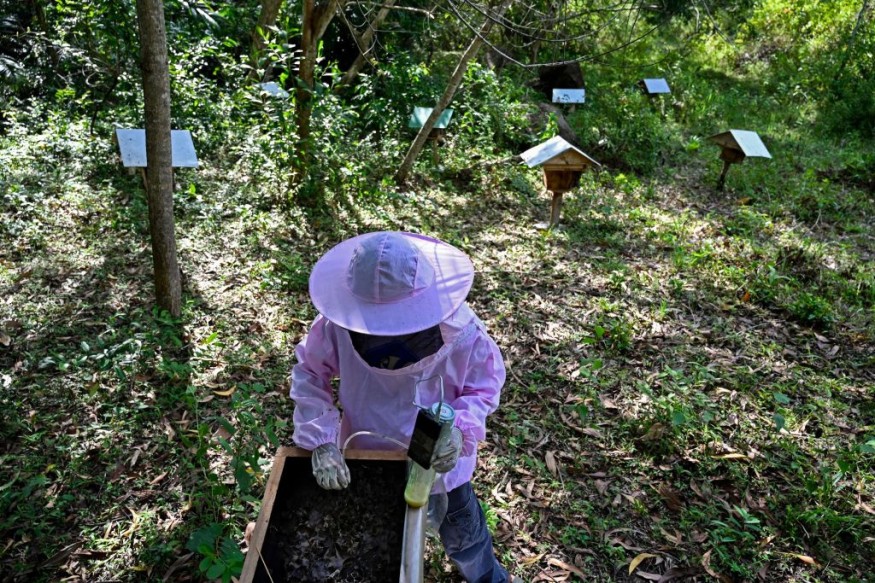The latest report raised concerns about the impacts of widespread pesticides on bees' health. Harmful substances can harm the immune system and mobility of stingless bees in Brazil.
Pesticides have had alarming effects on many species, particularly bees, affecting their health, metabolism, and immune systems. Understanding these potential health concerns is crucial to protecting the native stingless bees from population decline.
Pesticides effects on native stingless bees

According to a recent report, researchers warned that pesticide exposure can impair the mobility of stingless bees, highlighting that bees are shown to move slowly or walk less.
Another concern is the morphological changes found in bees' fat bodies. The researchers explained that pesticides significantly changed these species' immune response regulation, energy storage, and metabolism.
In addition, the main risk is a weakened immune system. When bees suffer this health risk, they can become unproductive or likely die. The widespread use of pesticides impairs the activity of significant proteins, crucial for the survival of bee cells and the immune system. As a result, bees are more exposed to environmental stress due to weakened health defense.
The researchers studied the native stingless bees that are found in Brazil. These species are important for pollinating wild plants and crops in the region.
The research report was published in Environmental Pollution.
The report also highlights the long-term consequences of widespread pesticide use. When these native stingless bees suffer from poor immune systems and infections, their colonies will significantly decline, and their pollination productivity will be reduced.
The additional risk of indiscriminate pesticide use is its adverse effects on bee biodiversity and survival in Brazil. In the analysis, the researchers studied the lethal impact of these harmful chemicals on bees' behavior, physiology, and morphology after exposure.
Tighter regulation in protecting bees
Due to implications for the stingless bee population in Brazil, the report emphasizes the need for tighter measures or regulations to protect these bees. Additionally, the study findings can offer new insights into protection efforts for public policymakers to potentially implement strict pesticide restrictions and protect sustainable approaches in agriculture.
Urgent approaches are crucial to address the growing concerns about pesticides' effects on native bee species, particularly the decline that could lead to problems in food security.
In addition to discovering the impacts on bees' immune systems, the researchers aim to study the influence of pesticides on other native bee species.
Related Article : North America's Butterflies, Bees Suffer from Population Decline Due to Climate Change, Habitat Loss
For more similar, don't forget to follow Nature World News
© 2025 NatureWorldNews.com All rights reserved. Do not reproduce without permission.





